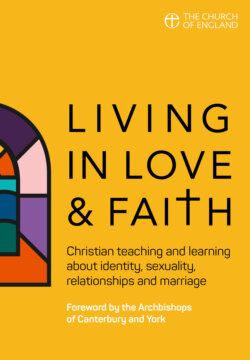Читать книгу Living in Love and Faith - Bishops of the Church of England - Страница 26
На сайте Литреса книга снята с продажи.
Stepping stones: connecting with context
ОглавлениеJesus was born in a particular place, with its particular culture, politics and religion. Into this context he proclaimed the coming of the kingdom of God. The Gospel of John invites us to notice Jesus’ relationship with the world. It is a world of darkness into which Jesus brings light and life (John 1.3-5), a world he loves and for which he dies (John 3.16). It is a world that he has conquered (John 16.33) which yet remains distinct from the kingdom of God (John 18.36). The disciples do not belong to the world but are called to be in it (John 17.14,15). As children of the kingdom they are called to live in a world that contains weeds as well as wheat (Matthew 13.38).
How does Jesus navigate a world that is a complex mix of justice and injustice, of power and oppression, of truth and falsehood and everything in between? How does he negotiate proclaiming the kingdom of God and the call to repentance while living alongside the practices and powers of secular and religious authorities? The Gospel accounts are full of surprises: a Roman centurion is praised for his faith (Luke 7.9); Jesus welcomes a corrupt tax official (Luke 19.1-10); Jesus accepts physically intimate expressions of devotion that defy social mores (John 12.3-8).
In this book we seek the wisdom of God for life together in the twenty-first century. How are we to negotiate the world in which we find ourselves? What are the prevailing visions of a flourishing life in our world? How are these enacted in people’s relationships and sexual behaviour? Where is there darkness and where do we see light? Where is power being abused and where are the values and virtues of God’s kingdom being lived out? Whose voices are we listening to or silencing? How far should the gospel be at home in this culture? How can we communicate our Christian vision for human flourishing in ways that are meaningful? How can we inhabit the gospel authentically and faithfully as communities of Christian believers in our culture today?
In order to begin to address these questions we need to look carefully at the world we inhabit, remembering that it is a world in which we ourselves are embedded. So while we will try to describe what is going on in our society as objectively as we can, we will need to be attentive to our own tendencies to make judgements or draw conclusions which may or may not be shaped by our Christian faith. We may, for example, find ourselves overwhelmed by the pace of change around us or by our anger about the church’s resistance to change. The visceral and intimate nature of the subject may trouble us in a way that arouses powerful emotions we find hard to express. We may find ourselves silenced because the ‘political’ nature of the conversation prohibits us from saying what we think or feel. We may find ourselves threatened by the findings of biological or social sciences or by technologies that can change our bodies in previously unimagined ways.
And yet our task now, as always, is to see the culture we inhabit through the lens of the gospel. We are seeking a way of living in the world as citizens of heaven (Philippians 3.20; 1 Peter 2.9-12). We are seeking to live together as a church, faithfully and prophetically. For this we need to listen to the perceptions of Christians whose lives have been shaped differently from us in order to begin to tease out together what is truly good and what is bad, what is creative and what is destructive, what is and what isn’t conformed to God’s kingdom in our culture today. The Church is international, so we will also need the help of disciples from other parts of the world, who live in other cultures and situations, and who can speak with fresh insight into our own. The Church is universal, so we will need the guidance of other Christians living out their faith in other churches. The Church is not isolated: there are others who seek to walk the path of God. We always have more to learn from ‘the true light, which enlightens everyone’ (John 1.9) and which came into the world: Jesus Christ.
For further discussion about the place of cultural context in Christian deliberations about identity, sexuality, relationships and marriage, see Chapter 16 (here–here).
